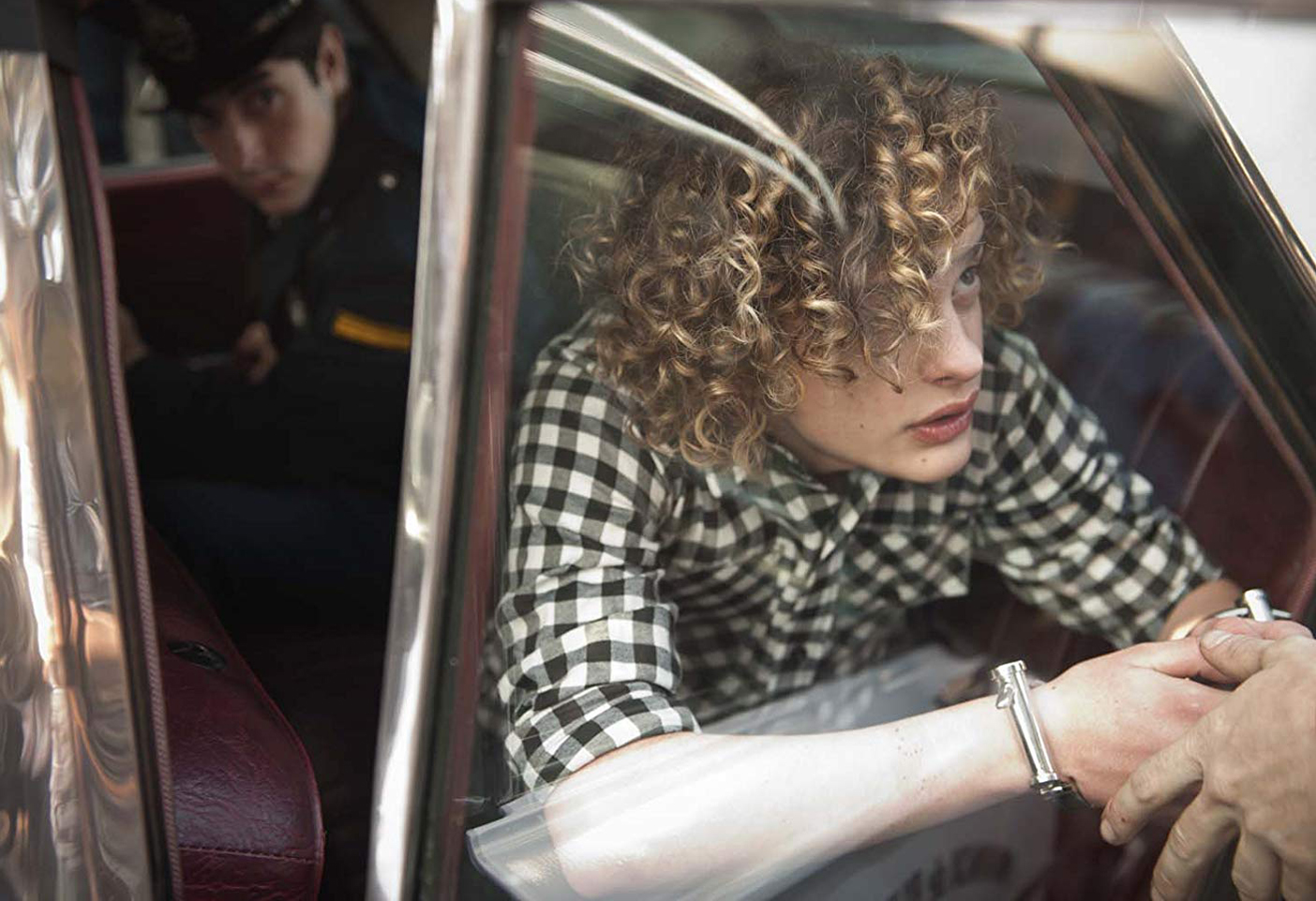
- Golden Globe Awards
The Angel (Argentina)
We see a boy – is it really a boy? – walking towards a mansion. We hear a male voice narrating his thoughts: “I am a born thief”. Yes, he is a young man. A curly set of blonde hair. Full lips. Effeminate, like a young Mick Jagger. Later, after following his self-assured footsteps while burglarizing the mansion, we continue listening to this off-voice: “My mother could not conceive. Until her doctor told her to pray to God who creates everything worth to be on earth. She did. And then I was born. I came directly from heaven. I am a gift from God”.The real Carlos Eduardo Robledo Puch, born 1952, was not the only one who considered him some sort of angel. With his angelic looks – after putting on earrings during a jewelry heist, his friend compares him to Marilyn Monroe – he was a gift from God in the eyes of many. But most of the people in the early seventies in and around Buenos Aires, Argentina, considered him an Angel of Death.He was convicted of 11 murders, one attempted murder, 17 robberies, rape. His victims died of shooting, strangling, bludgeoning with rocks, slitting of their throats. In 1973 he was captured, sentenced and imprisoned for life. All his attempts to get parole have since been rejected by the courts. Even his plea to get the death penalty to end the decades of imprisonment got no follow-up. It would have been illegal. There is no death penalty in Argentina.The Carlos “Carlitos” Puch of Luis Ortega’s film The Angel (El Angel) differs from the historical reality. We see Carlitos as a very young man who evolved from petty theft to accidental killings to deliberate murder without him showing an emotional response or any signs of remorse. But we are spared the most gruesome aspects of his actual criminal records.One can assume this was a conscious decision by the director (plus there might have been some input by Pedro Almodovar, one of the producers). To turn the life of “Carlitos” into a serial killer horror flick most certainly would have distracted from the main questions of the movie, Argentinian’s selection for the Golden Globes and Oscars – where are the destructive, inhuman impulses of seemingly “normal” human beings coming from? And more specifically, why does the son of a perfectly regular middle-class couple, a stern, somewhat passive father and an emotional, loving mother, why does such a boy not lose sleep after randomly killing totally innocent bystanders.Luis Ortega obviously uses the unexplained and maybe inexplicable crimes of a young man as a case study within the endless assessment of nature vs. nurture. The film actually quotes the now discarded Lombrosian Theories which claimed that natural born criminals exist but they are recognizable by their physical ugliness. The experts quoted in the film were perplexed by the pleasing physical appearance of a psychopath like Carlitos.In a way, it is Carlitos himself who gives us a hint at the end. His parents try to get his life sentence reduced or removed by declaring him legally insane. Baffled, Carlitos asks his parents if they really believe he might be mentally ill. “You must be”, cries his mother, “Or do you think a normal person could do what you did?”After a long pause, Carlitos responds: “Si”.